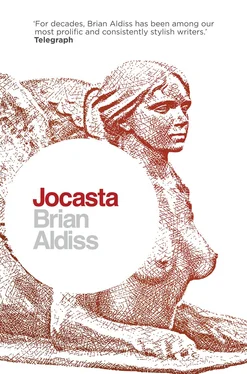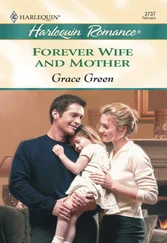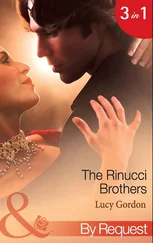She recollected now, as her carriage bumped over the barren heathland, a night when she returned to Laius’ palace, after dining with Creon and Eurydice. Creon had accompanied her, since it was deemed incorrect for women – even queens – to walk in the streets alone.
Entering the palace, they heard cries, sounds expressing something between pain and ecstasy, or a blend of both.
Hastening through to the courtyard, they came on a scene which remained, though many a year had passed, vivid in Jocasta’s mind. Laius was bent naked over a naked boy. About these figures, as in a diseased dream, stood four naked slaves, holding lamps aloft, and all with erections gleaming as if oiled.
The sweat of Laius ran from his back and down his buttocks to the floor.
Laius had penetrated the rear exit of the boy. His left hand clutched the boy by the throat, while with his right hand he agitated the puerile organ of the child. It was from this boy that the cries of agony and joy issued. Laius himself was mute, his face in the lamplight a mask of lust.
Creon leapt forward, drawing his short sword.
‘You beast! How dare you perform this foul act before mere slaves?’
As he waved his sword, the four slaves dropped their lamps and fled, clutching those organs they no doubt thought imperilled by Creon’s avenging blade. The darkness would have been complete, had the moon overhead not been at full, throwing its drab light on the scene.
Although considerably aghast at being discovered, Laius was defiant.
‘You dare speak thus to your king? Go! I must satisfy myself somehow. My wife will not do it.’
To all this Jocasta had been witness, concealed behind a curtain. Only now did she step forth to confound her husband’s words.
‘You liar!’ she cried. ‘On how many occasions have I not bent to your drunken whim, yielded my body to your thrust – yielded to your wretched preferences, while you poured your disgusting seed into my hinder parts?’
‘Who is this wretched urchin you were defiling?’ Creon demanded of the king. ‘Some common street boy, doubtless!’
Creon seemed to grow in authority and darkness, while Laius shrank back, snatching up his disordered robe and clutching it about him with one hand.
The boy seized on the opportunity, slipping from Laius’ grasp, to run away. They heard him as he rushed into the street, yelling at the top of his voice that the king had molested him.
‘Do shut that brat up!’ cried Laius. His voice was faltering. ‘He’ll awaken the neighbourhood. He liked what we were doing, Creon, begged for it, believe me. He’s no slave. He’s a freeman’s son, by name Chrysippus. Do pray silence him.’
Creon drew himself up, while still wielding his sword in a threatening manner.
‘Put your clothes together, you pederast. I will see that this vile act is known, and your four menial witnesses executed in due time. Your reign as King of Thebes is at an end.’
Jocasta’s mind drifted to the present. It was many a year since that gross incident, buried within the sinews of a June night. Laius, forgetting his crown, had fled the city. Yet, as Creon said, a curse lay over Thebes to this day. There was a pollutant in its bloodstream: so Creon declared. It kept him from the throne.
The memory of those days returned roughshod to Jocasta when the procession passed another place where three roads met, on the edge of the heathland. There, it was said, brigands had attacked Laius in his chariot and killed him. That act of regicide haunted the situation still in Thebes.
Such reflections caused a melancholy disturbance in Jocasta. She felt herself tremble inwardly. Why was it that human life should be so troubled? The life of a wolf was better. Wolves enjoyed the wilderness and the hunt. They relished their strength, their speed, and their family relations. Why was a human being’s life more troublesome than a wolf’s?
Perhaps wolves had no memory. Perhaps animals were not born to carry the burden of the past with them every day.
Why did she suffer from black spells, during which she felt her life to be hardly worth a candle? She had experienced similar moods when her first child was growing inside her body. Her grandmother had rebuked her for them.
She had become bound to religion, undertaking incantation and self-chastisement. Then, when her child had been born, she – little more than a child herself! – had gone to the shrine of Apollo to seek a blessing for the infant, and had experienced the great black moment of her life.
For what had the servant of Apollo said?
She felt the trembling overcome her again as she recalled the prodromic utterance: that her innocent babe, her boy-child, would grow up to kill his father and, even worse, would take his father’s place and cohabit with his mother. This grievous prediction would surely be fulfilled.
She had told Laius of this terrifying prophecy. He had struck her, alarmed and made furious by the blackness of the prediction. Laius was full of pride. He had gone, humbling himself, to Apollo. Apollo had spoken in precisely the same terms Jocasta had been forced to hear: that their infant boy would grow up to be a regicide and, having killed his father, would take his place in his father’s bed, to mate with his own mother.
Laius pleaded. Laius swore. Laius sacrificed a dozen goats. Laius covered himself with dust and pleaded again. Still the answer came: that the future was immutable. What had been predicted could be turned aside by no man.
Husband and wife, Laius and Jocasta, had discussed this ghastly prediction in whispers; talked in the dark bedchamber, failed to sleep, became ill, quarrelled, made it up, whispered again.
And decided that the prediction must not be fulfilled.
That Apollo must be defied.
Decided that their infant must be killed.
That his tainted blood must be spilled.
‘Do you feel unwell, Mama?’ Ismene asked. The question brought Jocasta back into her present, to the vehicle with its creaking wheels, the barren land all about them, and dark clouds frowning on the horizon.
Jocasta glared at her daughter under her long lashes.
‘Leave me to myself, Ismene. I’m well enough.’
Ismene made a face. ‘I know. “My happiness is my own, so’s my gloom” …’ She was quoting an earlier saying of her mother’s against her, in a sing-song voice.
Jocasta merely sank back into her cloak of dismal introspection as the carriage jolted on its slow way, a creak for every turn of the wheels. In her mind, she heard her grandmother declare that she was sulking again.
Oedipus and his sons walked beside the carriage. The king gave no indication that the march brought him pain. They discussed how far a man might walk before he came to the edge of the world. Soldiers marched before and behind the party. The landscape, tawny and desolate, lay like a lion asleep. There was no suggestion that it would ever cease, or ever awaken.
Jocasta feared that she could never escape from the past. Like the landscape, it surrounded her, went on for ever. Past, present and future were one whole garment. She could not tear that garment from her body.
Laius had been weaker of will than his wife. She had forced him to act against Apollo’s prophecy. She had steeled herself to look on while he pierced the infant’s feet with a skewer and tied them together with cord, so that the child was unable even to crawl. Laius had then gone to the end of the city with the howling child under his cloak. There he had thrust it on a shepherd, with instructions to leave the infant to die on a distant hillside, away from the sight of men.
There was an element of comfort for Jocasta to recall that she had rushed forward and kissed the poor babe farewell on its wet cheek. Then the shepherd had it firmly under his arm and was off.
Читать дальше












